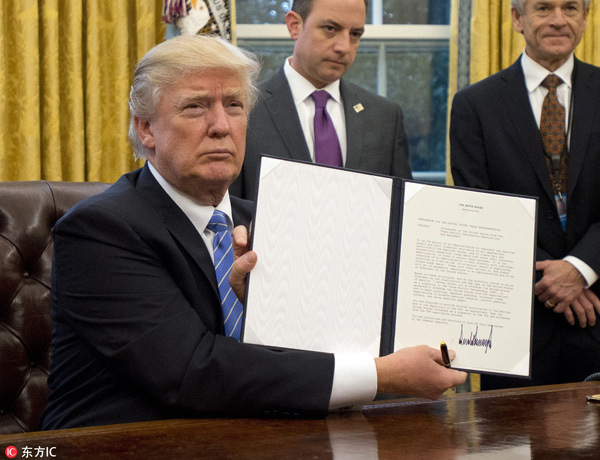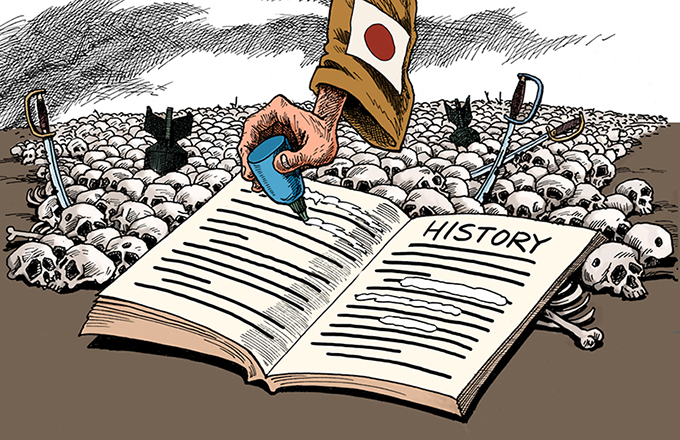TPP ends with little fallout
 |
|
US President Donald Trump shows the Executive Order withdrawing the US from the Trans-Pacific Partnership (TPP) after signing it in the Oval Office of the White House in Washington, DC, USA, January 23, 2017. [Photo/IC] |
For Asian businesspeople who were expecting greater access to the US market, perhaps the best advice for the time being may be to heed the suggestion of Russian poet Alexander Pushkin to beat the day of grief: "Merry days will come, believe."
On Monday, US President Donald Trump formally withdrew the United States from the Trans-Pacific Partnership agreement, which was submitted for US congressional approval last year by the Barack Obama administration.
US officials once touted the TPP as the best and largest multilateral trade deal ever, even although it was to a great extent a political device aimed at curtailing China's influence in the Asia-Pacific.
Now that protectionism is on the rise in the US, Asian nations can no longer expect to develop their economy by providing ever increasing exports to the US markets. It is time for Asian economies to start relying more on regional and neighborly ties.
A much more accommodative reality, as China realized a few years ago, hence its proposal of the connective and cooperative Belt and Road Initiative, is that Asian nations focus on forging stronger economic ties among themselves.
The ongoing urbanization of Asian nations means the middle class in the region is growing rapidly. Their demand has already become an important part of the global market. The 10-member Association of Southeast Asian Nations, for instance, is the European Union's third largest trading partner after the US and China.
Negotiations on the Regional Comprehensive Economic Partnership, a multilateral economic arrangement by ASEAN and its six free-trade agreement partners - Australia, China, India, Japan, New Zealand and South Korea – have been taking place, and no nation has shown an interest in backpedalling.
Thus the US' withdrawal from the TPP may prompt the RCEP partners to speed up the process, so they can reach an agreement as soon as possible.



















